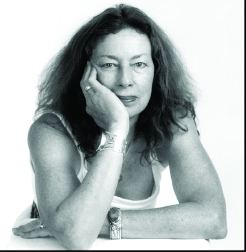As the world continues to struggle with how to deal with the health and economic effects of the coronavirus pandemic, people are staying at home. The longer we remain sheltered in place, the more local our personal world becomes. The most vulnerable rarely leave home at all. Groceries and medicines are ordered by phone and restaurant takeout is picked up curbside. UPS and FedEx deliveries are a connection with the outside world. 
Two months into staying at home, people are finding ways to cope as best they can. Some are busy making masks for first responders and seniors. Boardgames and puzzles are popular again. FaceTime and messaging bring us together while physically apart. Zoom sessions have mushroomed. Parents balance homeschooling while working from home, and teachers conduct classes remotely. Those with time on their hands are studying foreign languages again, painting, and exercising more. Some have adopted a pet for company. Others are rediscovering the joy of cooking and eating meals as a family. Living in the country, writing and gardening offer a quiet haven from today’s traumatized world.
But for millions living in America’s densely populated urban centers, life in the time of Covid-19 is a noisy, frightening, persistent nightmare. Brooklyn has become the epicenter of NYC’s battle against the virus. For a sense of daily life there, I follow my writer friend Matthew Goodman’s “Life in the bunker” reports on Facebook. He’s given me permission to share his “day 60” post, written May 10, 2020—two months into staying at home in Brooklyn—
“Life in the bunker, day 60: I’ve been in my house for two months now, as has my family, and most of my neighbors, and those whom I care the most about in this city. And while we’re doing that, we’ve been sewing masks for our front-line medical workers facing battlefield conditions; and trying not to go crazy from the constant sirens; and watching the Governor’s daily press conference at 11:45 to hear the grim statistics from the day before — hundreds more dead every single day for two months straight; and updating wills, because you’re not confident both of you will survive and you want to make sure the kids will be taken care of in the event of your deaths; and worrying about elderly parents, and arranging for them to get food, and fretting that if they have to go to the hospital you will likely never see them again; and worrying every time you think you might have been accidentally exposed to the virus, and starting the fourteen-day clock again in your mind; and contemplating which hospital emergency room would be the least overrun in the event you have to go, and whether to take an ambulance to get there; and sending donations to the organizations caring for our elderly and newly unemployed, and for our undocumented neighbors who won’t get federal aid; and taking time every evening at 7:00 to cheer for our heroes; and looking at the houses up and down the block and wondering where the bomb will explode next, like in the Battle of Britain; and putting cash in an envelope and taping it to the front door as a tip for the delivery guy who leaves essentials like food and medicine on your stoop with a few sharp knocks on the door so you don’t have to see each other; and feeling the doubt creep into your mind with every cough and wheeze amidst allergy season; and taking walks when you can, struggling to maintain social distance in the congested city; and waiting patiently in line, six feet apart, outside of pharmacies and grocery stores, all the while wearing masks; and having every conversation shadowed by the pandemic, whether you’re discussing it or not; and checking the local maps in the newspaper to see how your zip code stacks up against others in reports of new cases, feeling the epidemic surrounding you; and home-schooling the kids and wondering how to get them exercise when all the playgrounds have been shut down; and wandering through the deserted neighborhood, looking at all the locked and gated stores and knowing that many of them will never re-open; and ordering online and by takeout from the local stores and restaurants trying to stay open during the crisis; and worrying, and worrying, and worrying, about your health and the health of those around you, and all the while mourning the deaths of people you have known and loved, who died all alone in hospital rooms and will not receive the burials they deserve.” (Matthew Goodman, author of “The City Game: Triumph, Scandal, and A Legendary Basketball Team.”)
From NY to Missouri, we’re trying to cope and be mindful of our neighbors. After reading Matthew’s “Day 60” post, I shared a good news story with him. A group of Missouri women have launched “The Common Ingredient”—a blog sharing food stories and recipes as a way to encourage donations to local organizations helping to feed our community. Perhaps Matthew Goodman will share a recipe and food story with his Missouri readers and friends as a way to connect across the miles and keep hope alive while we continue to stay at home and carry on. We’re all in this together. [Visit:www.thecommoningredient.com]
Cathy Salter is a geographer and columnist who lives with her husband, Kit, in Southern Boone County at a place they call Boomerang Creek.







Facebook Comments